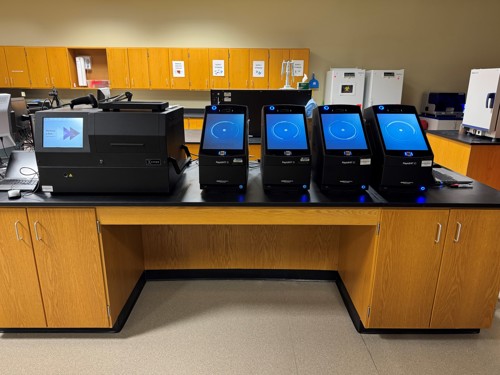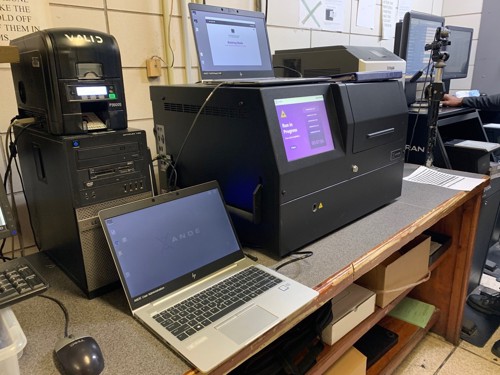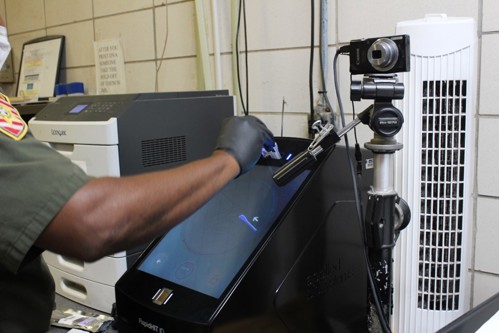RAPID DNA Unit
Rapid DNA is a term used to describe a process of developing a DNA profile from a known or questioned sample in as little as ninety minutes using specialized instrumentation without the need for traditional DNA laboratory equipment. There are generally two FBI-recognized uses for Rapid DNA technology in the field of forensic science: Rapid DNA Analysis and Modified Rapid DNA Analysis.
Rapid DNA Analysis is the fully automated (hands-free) process of developing a CODIS acceptable STR profile from a casework reference or forensic sample. The “swab in – profile out” process consists of automated extraction, amplification, separation, detection, and allele calling without human intervention. In August of 2022, the Louisiana State Police Crime Laboratory became the first agency in the United States to receive FBI approval to operate a Rapid DNA Booking Program using Rapid DNA Analysis. This program involves placing Rapid DNA technology at approved Louisiana booking agencies where qualifying arrestee samples are processed by trained deputies and simultaneously searched against the DNA Index of Special Concern (DISC), a subset of unidentified high-profile evidence DNA profiles in CODIS. Any hits resulting from these searches are quickly communicated through an automated message to both the booking agency and the law enforcement agency investigating the case, potentially providing a critical investigative lead while the perpetrator is still in custody, possibly preventing additional crimes and making communities safer.
The crime laboratory has partnered with several Louisiana booking agencies in this endeavor, including the East Baton Rouge Sheriff’s Office, Livingston Parish Sheriff’s Office, Ascension Parish Sheriff’s Office, and Ouachita Parish Sheriff’s Office, and is also working with other agencies to implement the technology in the near future.
Modified Rapid DNA analysis is the semi-automated (hands-free) process of developing a CODIS acceptable STR profile from a casework reference or forensic sample. The “swab in – profile out” process consists of automated extraction, amplification, separation, and detection without human intervention, but requires a trained DNA analyst to perform manual interpretation and technical review. The LSP Crime Lab has been working over the last several months to implement Modified Rapid DNA Analysis to analyze crime scene evidence profiles in accordance with the updated FBI’s Quality Assurance Standards, which are effective on July 1, 2025. The goal is to have these profiles uploaded to CODIS, where they can be searched nationally against offender DNA records in an attempt to provide timely investigative leads to our law enforcement partners. The crime lab anticipates using the technology in the latter half of 2025.
References
Please view the links below for more information on the usage of Rapid DNA Technology in Forensic Science.
- FBI's Guide to All Things Rapid DNA
- National Rapid DNA Booking Operational Procedures Manual
- Standards for Operation of Rapid DNA Booking Systems by Law Enforcement Booking Agencies
Image Gallery
Crime Lab Units
- Crime Scene Investigation
- Drug Analysis
- Evidence Receiving
- Firearms
- DNA - CODIS
- DNA - Forensic
- DNA - Rapid
- Latents
- Quality
- Toxicology
- Sexual Assault Kit Tracking
- Crime Lab Reports
Contact
Captain Chad Guidry - Commander
376 East Airport Dr.
Baton Rouge, LA 70806
Phone:(225)925-6216
Email: [email protected]




